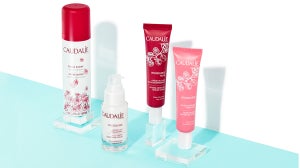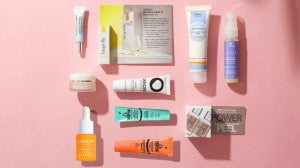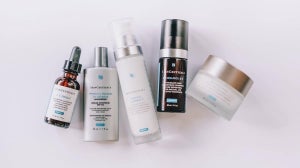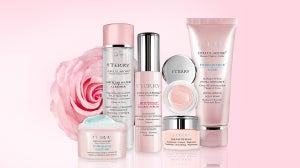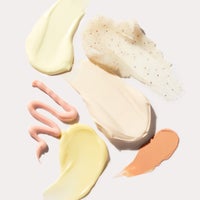
What are they?
Clogged pores are synonymous with congested skin. Sabaceous glands underneath your skin produce an oily matter that lubricates your skin and hair. It sounds gross but it's for the greater good! Sebum prevents your skin from drying out and protects it against environmental damage. But dirt, oil, sweat, dead skin cells and make-up can stick to the sebum and get backed up in your pores like a bad traffic jam. The glands continue to produce oil, now in excess, leading to blockage and acne. Clogged pores can affect any skin type.
It happens to the best of us, even Kendall Jenner. She looks flawless at every angle, but if you remember she struggled with acne for years, since middle school actually. Dermatologist Dr. Kidd explained to Seventeen last year that together, they developed a simple skincare routine which clearly worked. Once an insecure teenager, Kendall is now a red-carpet and runway sensation!
How do you treat them?
Congested skin should be washed twice daily with a gentle cleanser. Rinse really well, pat your skin dry, wipe your face down with an acne fresh pad and then uses a sunblock which contains acne medication. In the PM, she uses a renewing serum to help calm inflammation and ensure skin is moisturized.
What not to do:
Dr. Kidd advised against anything abrasive: not a scrub, a rotating brush or a washcloth. Instead, treat skin very delicately and wash it really well with your hands.
Some cleansing devices, like the FOREO Luna 2, are very gentle and there are hit cleansers, like the Eve Lom cleanser, which require a washcloth. These won't aggravate your skin and won't spread bacteria providing you wash them after every use. If that sounds too high maintenance for you, stick to using just clean hands.
Note:
Clogged pores are also referred to as comedos. There are several products out there which are non-comodogenic, which means they have been specifically formulated so as not to cause congestion. Consider non-comodogenic alternatives to your everyday products, but know the 'non-comodegenic' label is not a guarantee against acne. Rather, that the ingredients are not known to cause congestion.
Which ingredients should you look for in your products?
Benzoyl Peroxide
Benzoyl peroxide has strong antibacterial and anti-inflammatory effects on the skin and is widely recognised as a treatment for acne. The antiseptic quality of the peroxide makes it more than suitable for reducing bacteria on the surface of the skin, as well as whiteheads and blackheads. It works safely in conjunction with products containing salicylic acid. It's especially useful for oily skin types.
Salicylic Acid
Salicylic acid is a well respected skincare ingredient. Dermatologists and bloggers will attest to its powers, which help clear congested skin. Salicylic acid can penetrate deep into the pore lining, exfoliating inside the pore as well as on the surface of the skin. It comes with anti-irritant and anti-inflammatory qualities too, so your skin is soothed and redness reduced.
Mandelic Acid
Mandelic acid is derived from bitter almonds. It's high in anti-bacterial properties which loosen blackheads and clean pores. It's a useful ingredient for anti-ageing products and works really well on all skin tones, hyperpigmentation, rosacea and sun damage.
Sulfur
Sulfur is gentle but effective. It's less drying than benzoyl peroxide - sulfur acne spot treatments will not dehydrate skin and leave it further irritated. Instead, it works to remove excess shine and over time, help heal existing breakouts for a brighter, clearer, and noticeably smoother complexion. Good for dry or sensitive skin.
If you’re concerned about clogged pores, or any other skin condition, tweet or Facebook us and we’ll do our best to help!
| Love Skincare? discover our edit of how to build a skin care routine. |

Related Articles


